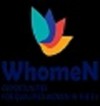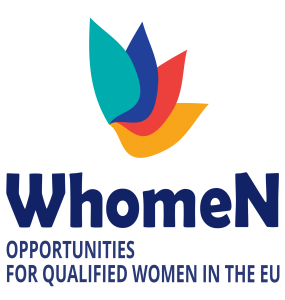 The economic and social crisis that Europe is facing has led to a sharp decline in economic activity and recession. The labour market is being severely hit and unemployment rates are increasing negatively affecting the EU’s potential growth. Unemployment is particularly high among women and young people and this situation is exacerbated among migrant women and women at risk of social exclusion. In addition, these groups are more vulnerable because of issues related to work-life balance, limited availability for training and access to resources.
The economic and social crisis that Europe is facing has led to a sharp decline in economic activity and recession. The labour market is being severely hit and unemployment rates are increasing negatively affecting the EU’s potential growth. Unemployment is particularly high among women and young people and this situation is exacerbated among migrant women and women at risk of social exclusion. In addition, these groups are more vulnerable because of issues related to work-life balance, limited availability for training and access to resources.
In this scenario, the aim is for Europe to become a smart, sustainable and inclusive economy. Inclusive means, among others, raising Europe’s employment rates and helping people with fewer opportunities of all ages manage change through investment in skills and training.
AIMS
To generate and pilot test a Protocol for a more comprehensive and inclusive recognition of professional competences with women, after the training of adult education professionals
To define paths for the acquisition of transversal skills by low-skilled women, establishing connections for future acquisition of new specific skills, based on personalized itineraries.
RATIONALE
WhomeN project arises from the necessity to develop new approaches aiming at the construction of professional competence of women at risk of social exclusion. It aims at improving qualification and access to job opportunities given to women at risk of social exclusion, focusing in two target groups: migrant and refugee women and +45 women. The project will develop activities and materials to improve methods to acquire and recognize skills and to create more opportunities to integrate labour market.
 A Protocol for the evaluation of skills and competencies, based on EU guidelines and best practices, like ECVET and EQAVET, will be developed to allow better integration at work, especially in the case of women with no formal qualification, underlining and putting in evidence their basic and transversal skills. It will be based on the target groups’ needs research and include quality assurance with guidelines for cultural diversity and gender equality. To facilitate its practice, an interactive platform with pedagogical materials will be launched. Training of 18 adult education professionals will be done with the purpose of fine tuning the Protocol and capacitate for the pilot implementation with 165 women.
A Protocol for the evaluation of skills and competencies, based on EU guidelines and best practices, like ECVET and EQAVET, will be developed to allow better integration at work, especially in the case of women with no formal qualification, underlining and putting in evidence their basic and transversal skills. It will be based on the target groups’ needs research and include quality assurance with guidelines for cultural diversity and gender equality. To facilitate its practice, an interactive platform with pedagogical materials will be launched. Training of 18 adult education professionals will be done with the purpose of fine tuning the Protocol and capacitate for the pilot implementation with 165 women.
More about the project here
